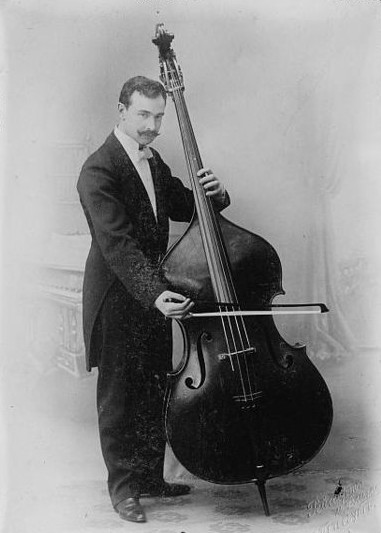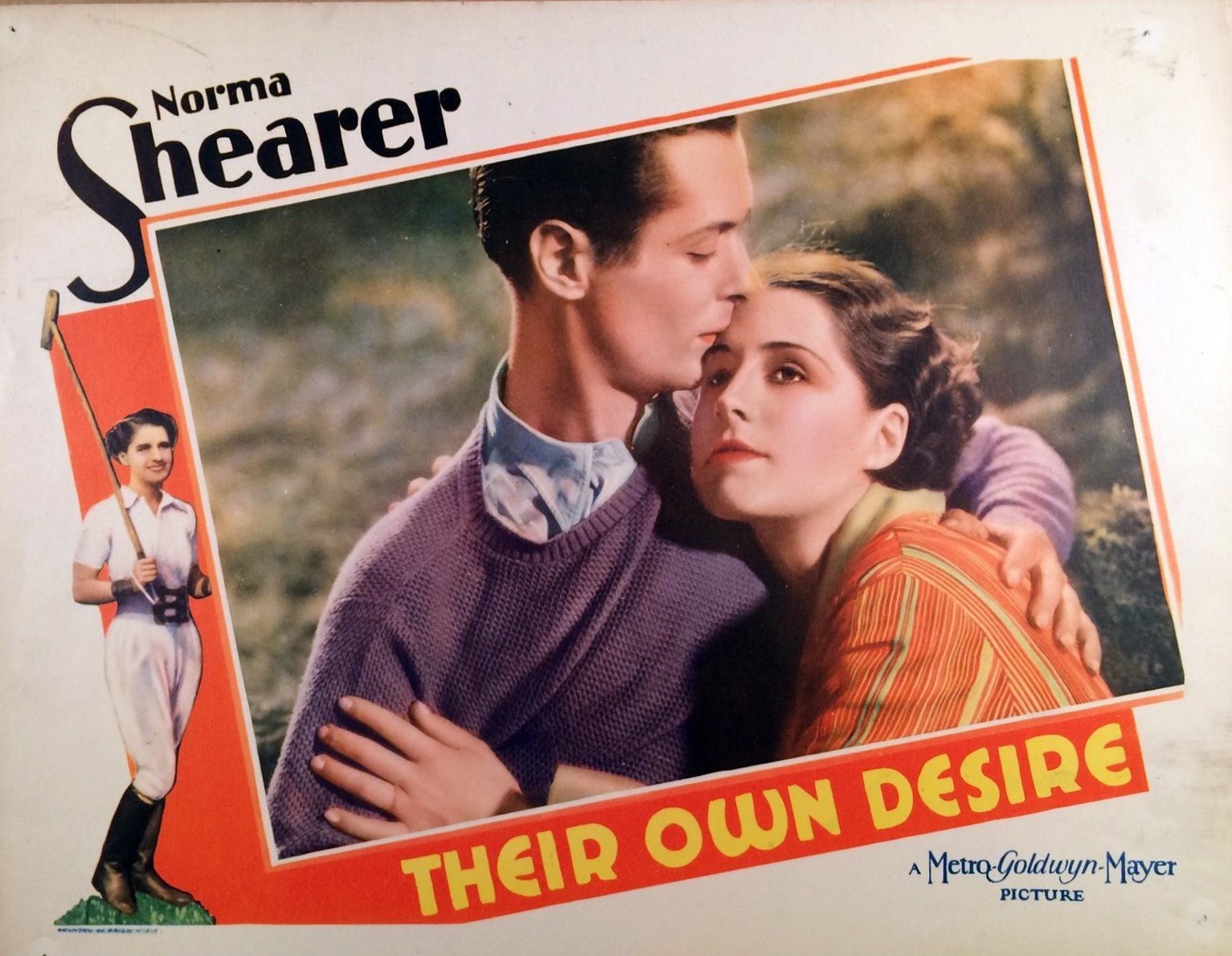|
Maurice Goldman (composer)
Maurice Goldman (1910–1984) was an internationally known composer and conductor. Goldman’s compositions and arrangements are largely in the areas of Yiddish and Hebraic music. However, like his mentors, Ernest Bloch and Aaron Copland, Goldman’s music breaks the boundaries of traditional Jewish melodies, employing chordal and harmonic elements found in Classical music, classical, jazz, and American folk music. Goldman was born on April 20 in Philadelphia, Pennsylvania. Soon thereafter, his family relocated to Cleveland Ohio, where his father, Marcus Goldman worked as a rabbi. Goldman’s musical talent appeared early in life. He was already singing, playing piano and composing original music at the age of five. Goldman attended Glenville High School in Cleveland, where he served as head of the Choral Department. At this stage, he worked largely as a singer, lending his rich baritone voice to performances of various pieces, including Handel’s “Invocation To Music” and “ ... [...More Info...] [...Related Items...] OR: [Wikipedia] [Google] [Baidu] |
Yiddish
Yiddish, historically Judeo-German, is a West Germanic language historically spoken by Ashkenazi Jews. It originated in 9th-century Central Europe, and provided the nascent Ashkenazi community with a vernacular based on High German fused with many elements taken from Hebrew language, Hebrew (notably Mishnaic Hebrew, Mishnaic) and to some extent Aramaic. Most varieties of Yiddish include elements of Slavic languages and the vocabulary contains traces of Romance languages.Aram Yardumian"A Tale of Two Hypotheses: Genetics and the Ethnogenesis of Ashkenazi Jewry".University of Pennsylvania. 2013. Yiddish has traditionally been written using the Hebrew alphabet. Prior to World War II, there were 11–13 million speakers. 85% of the approximately 6 million Jews who were murdered in the Holocaust were Yiddish speakers,Solomon Birnbaum, ''Grammatik der jiddischen Sprache'' (4., erg. Aufl., Hamburg: Buske, 1984), p. 3. leading to a massive decline in the use of the language. Jewish ass ... [...More Info...] [...Related Items...] OR: [Wikipedia] [Google] [Baidu] |
Serge Koussevitzky
Serge Koussevitzky (born Sergey Aleksandrovich Kusevitsky;Koussevitzky's original Russian forename is usually transliterated into English as either "Sergei" or "Sergey"; however, he himself adopted the French spelling "Serge", using it in his signature. (SeThe Koussevitzky Music Foundations official web site Retrieved 5 November 2009.) His surname can be transliterated variously as "Koussevitzky", "Koussevitsky", "Kussevitzky", "Kusevitsky", or, into Polish, as "Kusewicki"; however, he himself chose to use "Koussevitzky". , ; 4 June 1951) was a Russian and American conductor, composer, and double-bassist, known for his long tenure as music director of the Boston Symphony Orchestra from 1924 to 1949. Biography Early career Koussevitzky was born into a Jewish family of professional musicians in Vyshny Volochyok, Tver Governorate (present-day Tver Oblast), about 250 km northwest of Moscow, Russia. His parents taught him violin, cello, and piano. He also learned trumpet.J ... [...More Info...] [...Related Items...] OR: [Wikipedia] [Google] [Baidu] |
Psalm
The Book of Psalms ( , ; ; ; ; , in Islam also called Zabur, ), also known as the Psalter, is the first book of the third section of the Tanakh (Hebrew Bible) called ('Writings'), and a book of the Old Testament. The book is an anthology of Hebrew religious hymns. In the Jewish and Western Christian traditions, there are 150 psalms, and several more in the Eastern Christian churches. The book is divided into five sections, each ending with a doxology, a hymn of praise. There are several types of psalms, including hymns or songs of praise, communal and individual laments, royal psalms, imprecation, and individual thanksgivings. The book also includes psalms of communal thanksgiving, wisdom, pilgrimage and other categories. Many of the psalms contain attributions to the name of King David and other Biblical figures including Asaph, the sons of Korah, Moses and Solomon. Davidic authorship of the Psalms is not accepted as historical fact by modern scholars, who view it as ... [...More Info...] [...Related Items...] OR: [Wikipedia] [Google] [Baidu] |
Norman Corwin
Norman Lewis Corwin (May 3, 1910 – October 18, 2011) was an American writer, screenwriter, producer, essayist and teacher of journalism and writing. His earliest and biggest successes were in the writing and directing of radio drama during the 1930s and 1940s. Corwin was among the first producers to regularly use entertainmenteven light entertainmentto tackle serious social issues. In this area, he was a peer of Orson Welles and William N. Robson, and an inspiration to other later radio/TV writers such as Rod Serling, Gene Roddenberry, Norman Lear, J. Michael Straczynski and Yuri Rasovsky. His work was very influential on successful creative and performing artists, including Ray Bradbury, Charles Kuralt, The Firesign Theatre, Robert Altman, and Robin Williams among many others. A major figure during the Golden Age of Radio, his work was very influential both at the time and later. He has been called "The Grand Master of American Audio Theatre". During the 1930s and 1940 ... [...More Info...] [...Related Items...] OR: [Wikipedia] [Google] [Baidu] |
Jewish Settlement (before 1948)
Jewish settlement may refer to: Events * Jewish settlement in Palestine, also called the land of Israel (see Yishuv) * Israeli settlement, Jewish settlements in the Israeli-occupied territories * Pale of Settlement, a region of the Russian Empire in which permanent residency by Jews was allowed and beyond which Jewish permanent residency was generally prohibited * Jewish settlement in the Japanese Empire * Aliyah, settlement of Jewish refugees and voluntary migrants in Palestine * ''Jodensavanne'', a Jewish settlement in Dutch Guyana Concepts and projects * Proposals for a Jewish state, various proposals and movements for settlement plans * Homeland for the Jewish people, the general quest, mostly during the 20th century, for places for peaceful settlement in Palestine and/or other proposed sites * Jewish Territorial Organization (ITO), a movement beginning in 1903 as a response to the British Uganda Scheme, to find an alternative territory to that of Palestine (other organization ... [...More Info...] [...Related Items...] OR: [Wikipedia] [Google] [Baidu] |
I Lift My Lamp Beside The Golden Door
"The New Colossus" is a sonnet by American poet Emma Lazarus (1849–1887). She wrote the poem in 1883 to raise money for the construction of a pedestal for the Statue of Liberty (''Liberty Enlightening the World''). In 1903, the poem was cast onto a bronze plaque and mounted inside the pedestal's lower level. History This poem was written as a donation to an auction of art and literary works; Mark Twain also contributed. conducted by the "Art Loan Fund Exhibition in Aid of the Bartholdi Pedestal Fund for the Statue of Liberty" to raise money for the pedestal's construction.. Lazarus's contribution was solicited by fundraiser William Maxwell Evarts. Initially, she refused but writer Constance Cary Harrison convinced her that the statue would be of great significance to immigrants sailing into the harbor. Lazarus was involved in aiding Jewish refugees to New York who had fled antisemitic pogroms in eastern Europe, and she saw a way to express her empathy for these refugees ... [...More Info...] [...Related Items...] OR: [Wikipedia] [Google] [Baidu] |
Cantata
A cantata (; ; literally "sung", past participle feminine singular of the Italian language, Italian verb ''cantare'', "to sing") is a vocal music, vocal Musical composition, composition with an musical instrument, instrumental accompaniment, typically in several movement (music), movements, often involving a choir. The meaning of the term changed over time, from the simple single-voice Madrigal (music), madrigal of the early 17th century, to the multi-voice "cantata da camera" and the "cantata da chiesa" of the later part of that century, from the more substantial dramatic forms of the 18th century to the usually sacred-texted 19th-century cantata, which was effectively a type of short oratorio. Cantatas for use in the liturgy of church services are called church cantata or sacred cantatas; other cantatas can be indicated as secular cantatas. Several cantatas were, and still are, written for special occasions, such as Christmas cantatas. Christoph Graupner, Georg Philipp Teleman ... [...More Info...] [...Related Items...] OR: [Wikipedia] [Google] [Baidu] |
Cinema Of The United States
The cinema of the United States, primarily associated with major film studios collectively referred to as Hollywood, has significantly influenced the global film industry since the early 20th century. Classical Hollywood cinema, a filmmaking style developed in the 1910s, continues to shape many American films today. While French filmmakers Auguste and Louis Lumière are often credited with modern cinema's origins, American filmmaking quickly rose to global dominance. As of 2017, more than 600 English-language films were released annually in the U.S., making it the fourth-largest producer of films, trailing only India, Japan, and China. Although the United Kingdom, Canada, Australia, and New Zealand also produce English-language films, they are not directly part of the Hollywood system. Due to this global reach, Hollywood is frequently regarded as a transnational cinema with some films released in multiple language versions, such as Spanish and French. Contemporary Hollyw ... [...More Info...] [...Related Items...] OR: [Wikipedia] [Google] [Baidu] |
Philip Marlowe
Philip Marlowe ( ) is a fictional character created by Raymond Chandler who was characteristic of the hardboiled crime fiction genre. The genre originated in the 1920s, notably in '' Black Mask'' magazine, in which Dashiell Hammett's The Continental Op and Sam Spade first appeared. Marlowe first appeared under that name in '' The Big Sleep'', published in 1939. Chandler's early short stories, published in pulp magazines such as ''Black Mask'' and ''Dime Detective'', featured similar characters with names like "Carmady" and "John Dalmas", starting in 1933. Some of those short stories were later combined and expanded into novels featuring Marlowe, a process Chandler called " cannibalizing", which is more commonly known in publishing as a fix-up. When the original stories were republished years later in the short-story collection '' The Simple Art of Murder'', Chandler did not change the names of the protagonists to Philip Marlowe. His first two stories, "Blackmailers Don't Sho ... [...More Info...] [...Related Items...] OR: [Wikipedia] [Google] [Baidu] |
Robert Montgomery (actor)
Robert Montgomery (; born Henry Montgomery Jr.; May 21, 1904 – September 27, 1981) was an American actor, director, and producer. He began his acting career on the stage, but was soon hired by MGM. Initially assigned roles in comedies, he soon proved he was able to handle dramatic ones, as well. He appeared in a wide variety of roles, such as the weak-willed prisoner Kent in '' The Big House'' (1930), the psychotic Danny in '' Night Must Fall'' (1937), and Joe, the boxer mistakenly sent to Heaven in '' Here Comes Mr. Jordan'' (1941). The last two earned him nominations for the Academy Award for Best Actor. During World War II, he drove ambulances in France until the Dunkirk evacuation. When the United States entered the war on December 8, 1941, he enlisted in the Navy, and was present at the invasion at Normandy. After the war, he returned to Hollywood, where he worked in both films, and later, in television. He was also the father of actress Elizabeth Montgomery. Ear ... [...More Info...] [...Related Items...] OR: [Wikipedia] [Google] [Baidu] |
Film Noir
Film noir (; ) is a style of Cinema of the United States, Hollywood Crime film, crime dramas that emphasizes cynicism (contemporary), cynical attitudes and motivations. The 1940s and 1950s are generally regarded as the "classic period" of American film noir. Film noir of this era is associated with a low-key lighting, low-key, black-and-white visual style that has roots in German expressionist cinematography. Many of the prototypical stories and attitudes expressed in classic noir derive from the hardboiled school of crime fiction that emerged in the United States during the Great Depression, known as noir fiction. The term ''film noir'', French for "black film" (literal) or "dark film" (closer meaning), was first applied to Hollywood films by French critic Nino Frank in 1946, but was unrecognized by most American film industry professionals of that era. Frank is believed to have been inspired by the French literary publishing imprint Série noire, founded in 1945. Cinema hist ... [...More Info...] [...Related Items...] OR: [Wikipedia] [Google] [Baidu] |
Roy Rogers
Roy Rogers (born Leonard Franklin Slye; November 5, 1911 – July 6, 1998), nicknamed the King of the Cowboys, was an American singer, actor, television host, and Rodeo, rodeo performer. Following early work under his given name, first as a co-founder of the Sons of the Pioneers and then as an actor, the rebranded Rogers then became one of the most famous and popular Western stars of his era. He appeared in almost 90 motion pictures, as well as numerous episodes of his self-titled radio program that lasted for nine years. Between 1951 and 1957, he hosted ''The Roy Rogers Show'' television series. In many of them, he appeared with his wife, Dale Evans; his Golden Palomino, Trigger (horse), Trigger; and his German Shepherd, Bullet. Rogers is also best remembered for his signature song "Happy Trails (song), Happy Trails". His early roles were uncredited parts in films by fellow singing cowboy Gene Autry. His productions usually featured a sidekick, often either Pat Brady (actor) ... [...More Info...] [...Related Items...] OR: [Wikipedia] [Google] [Baidu] |







